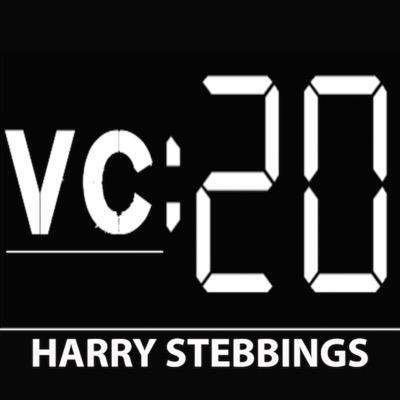Founder Lesson
Someone from a large company was asking me recently how I evaluated new startup ideas. They asked in a way that made me think of Shark Tank. I suspect that he expected me to say something like "I look for a strong technology patent" or "there has to be a big vision for a big market."
How I think about new startup ideas is very different and I was reminded of that in this podcast.
The founder in this podcast says that good ideas have to look terrible because "if it didn't look terrible (in the beginning) it wouldn't be a good idea...it would be the thing that everyone does."
Just to be clear, I'm not talking about physical products (like a new t-shirt) or retail stores (like your neighborhood pizza restaurant). Those are fine businesses, but they follow more normal customer satisfaction rules when they are launched. They fill clear and definable gaps in the world (like your neighborhood doesn't have a pizza restaurant), so they typically are less risky and grow more slowly.
I'm referring to high-growth startups (like Airbnb) that have to reach escape velocity. Many times those hidden market needs - that are surprisingly big - look bad in the beginning. Trust me...the first time you heard about Airbnb you thought it was a horrible idea...I have yet to find someone who didn't.
While a local restaurant might grow 20% per year, high growth startups often grow that much per month. Here's a foundational blog post about startup growth from Paul Graham that says startups growth is often 5-7% per week. Using these guidelines, "startups" grow 10x as much as other types of new businesses.
A few thoughts on what it means for good ideas to look bad at the start...
1) It's about the team. For people like me - startup investors and advisors - this means that the idea is way less important than (a) how much the team is in love with this problem and (b) their activity level.
Common misconceptions when people hear "it's all about the team" are (a) the team has deep industry experience or (b) everyone on the team has an Ivy League education. Very often industry outsiders disrupt industries, so industry experience sometimes is actually a liability. And while seeing Harvard or Bain on a resume might make me take someone slightly more seriously, that only lasts for a few minutes during our first meeting. If you dropped out of a community college, but truly love the problem and are making good/smart progress, I'll take you just as seriously.
2) Ideas don't matter. This is why the vast majority of experienced startup people say that "ideas don't matter" or investors say that "they'd rather invest in an A team with a B idea than a B team with an A idea."
You unique insight, your big vision and your deeply-felt mission are important sources of energy for you and your team, but they all pale in comparison to day-to-day execution.
Having started one of the main startup hubs in Atlanta two years ago I can say with confidence that the difference between the activity of an average team and good teams is very obvious. It's clear when founders love their problem, have a unique insight and make constant progress.
3) Expect to pivot. If you understand why startups pivot and expect your startup to pivot, then the ugliness of your original idea (and people telling you so) is much less important.
What matters most is founders arriving at their unique insight in an authentic way and sticking with that. The product that manifests itself from this can (and will) change.
4) Truly new ideas are difficult to verbalize. A few weeks ago I was in a room with two very well-known local startup founders. The three of us were meeting for a particular reason, but we got off topic for a minute where they white-boarded each of their favorite startup ideas. This isn't where either of them spend any of their time...these were just their favorite startup ideas rolling around in their heads.
After they were each done explaining their ideas I was struck by the clear holes in their ideas and how raw they were...especially given how experienced both founders were.
This was a clear example of how bad new ideas seem.
If either of these founders were to quit their day jobs and focus on these ideas, their ideas would get 5% better each week until they got to the point where they were super compelling. They are just ugly at the start.
5) Get better with PDFs. My favorite tactic to hone how I pitch a new idea is a one-page PDF. For a new idea I create a one-page PDF with just three sections...(1) hero message/tagline that describes the product in a short sentence, (b) a picture behind the hero message that shows the product or indicates something about the brand and (c) a short paragraph at the bottom describing the problem and solution.
Pulling this together and either presenting a physical printout or emailing a copy to solicit customer feedback is much better than a 5-minute narrative about the history of your idea and all the great stuff it might eventually do. A simple PDF forces you to make some tough decisions about how to describe your value prop and gives people something clean to respond to.
When startup ideas are in their very beginning form - maybe when the founder has only been thinking about them for a few weeks - 99% of what's there is just faith, judgement & gut...and this often looks very ugly to outsiders.
Truth be told, most ugly ideas turn out to be truly ugly once they play out because only 1% of startups get any traction. But sometimes they change the world.
Early on it's often impossible to tell the difference by just judging the beauty of the idea because other factors play a much more important part.
Sidenote: If you enjoyed this post, you might like this one as well.
Get Right to the Lesson
I’d recommend listening to the entire thing, but to get right to the point go to minute 11:35 of this podcast.

Thanks to these folks for helping us all learn faster
David Barrett (@quinthar), founder & CEO of Expensify (@expensify)
The Twenty Minute VC (@twentyminutevc)
Harry Stebbings (@HarryStebbings)
Please let me and others know what you think about this topic
Email me privately at dave@switchyards.com or let's discuss publicly at @davempayne.
The best startup advice from experienced founders...one real-world lesson at a time.
